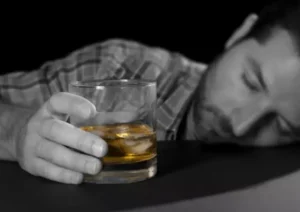
Above all, Melissa’s authenticity shines through her self-disclosure as someone in long-term recovery herself. This profound personal connection fuels her passion for working in the field and enables her to bring a unique blend of empathy and expertise to her role. Dry drunk syndrome refers to the emotional and behavioral struggles that can persist even after a person has stopped drinking alcohol.
Broken and Bleeding: Emotional Trauma and Substance Use Disorder
- Substituting alcohol dependence for another addiction due to unresolved trauma.
- Everyone in alcohol addiction recovery risks dry drunkenness, but it does become more likely for some specific groups.
- This mindset is a significant barrier to embracing a truly sober lifestyle.
- Dry drunk syndrome is most common among individuals who stopped using their drug of choice on their own without professional support.
- Regularly reviewing your journey can help you stay accountable and make necessary adjustments.
Shannon has a bachelor’s degree from the University of Virginia in Political Science. Prior to entering the substance abuse and mental health field, Shannon was a Corporate Executive for 18 years. Her experience in behavioral health training, program development, and organizational leadership lead her to pursue a certification as a Project Management Professional in 2018.
Utilizing Resources and Support Systems
Incorporate activities promoting physical and mental well-being, such as regular exercise, healthy eating, and hobbies. These positive habits can replace the void left by alcohol and improve your overall quality of life. Mindfulness and meditation can help you stay present and manage stress effectively. These practices promote emotional regulation and reduce the intensity of negative emotions.

Reaching Out For Support In Addiction Recovery
Read books, attend workshops, or take online courses to deepen your knowledge. By recognizing the signs of relapse, it is possible to seek help and adjust the treatment plan to address these issues. Judy is a Licensed Clinical Professional Counselor in the State of Maryland, and a National Certified Counselor. She earned her Master’s Degree in Clinical Counseling from Johns Hopkins University with an undergraduate degree in Psychology from the University of Maryland. She has served in both clinical and leadership positions in a number of roles, in inpatient and outpatient settings, as a Primary Therapist and Clinical Supervisor.

Always consult a medical professional first to get the right treatment advice. If prolonged alcohol abstinence with opiate PAWS are compared, it has to be said that opiates are more unambiguously linked with protracted signs of abstinence (in 90% of all cases). More research is needed to assess PAWS diagnostic criteria, which would then be included in psychiatric diagnostic manuals. A dry drunk meaning, on the other hand, is essentially someone who has given up drinking entirely yet is still displaying many of the same habits as when they were still drinking. With grandiosity, you are setting yourself up to be the center of attention; either superior to everyone around you, or by playing the victim. Either way, you’re distancing yourself from the people and world around you.
Is It Possible To Cope With PAWS Without Medical Treatment?

This can include unresolved trauma, unmanaged mental health conditions, or lack of coping mechanisms for stress. The reason why some people experience dry drunk syndrome can be complex. Often, it’s because they’ve only addressed the physical aspect of their addiction – the alcohol Halfway house consumption itself – without tackling the psychological components. It’s crucial to recognize the signs and seek professional help to manage and overcome this debilitating condition. Remember, it’s never too late to seek help and start the journey towards sobriety.
Popular Centers

In this case, the underlying mental health issues would be the cause of PAWS. According to this definition, even if a person abstains from drinking, the signs of “dry drunk syndrome” and being a dry alcoholic may still be considered a https://ecosoberhouse.com/ relapse. Remember that relapses are a typical and natural part of the healing process. It is essential to seek professional help if you or a loved one are experiencing dry drunk symptoms. A healthcare provider or addiction specialist can provide a proper diagnosis and develop an individualized treatment plan to manage the symptoms and prevent relapse. Breaking the cycle of addiction and achieving lasting recovery requires more than simply abstaining from alcohol consumption.
The Relationship between Dry Drunk Syndrome and Relapse?
With this self-knowledge, alcoholics can start to repair the damage their addiction caused to themselves and those in their life. If you or a loved one is experiencing dry drunk syndrome, it does not mean there is a relapse about to occur. A relapse is when someone has stopped drinking and starts drinking again.
Emotional Turmoil
Although a parent, friend, or other loved one may have convinced the dry drunk to stop using, the dry drunk is not likely to realize that they are to blame for their situation. According to experts on effective recovery methods, this is a problem. Humility plays a major role in any successful recovery, and someone who cannot accept responsibility for their circumstances is unlikely to find success in their journey to sobriety. By addressing these underlying causes, you can significantly reduce the likelihood of experiencing dry drunk syndrome. A lack of motivation to engage in recovery activities, such as attending support groups or therapy, can be a significant indicator of dry drunk syndrome.
- Not everyone needs professional alcohol addiction treatment, especially if their addiction isn’t severe.
- These protracted or prolonged withdrawal symptoms are similar to mood disorders.
- Sobriety is not just a destination to arrive at after quitting alcohol, going through detoxification, and attending a rehab program; sobriety is a lifelong journey.
- Recovery can be a challenging process and requires a lot of strength and courage.
What Is a Dry Drunk? Understanding Recovery Beyond Abstinence?
Some people continue to act recklessly or compulsively even dry drunk syndrome symptoms after they quit drinking. Dry drunks are people who have overcome physical dependence to alcohol but haven’t committed to living a healthy, meaningful life in recovery. While prolonged substance abuse and subsequent post-acute withdrawal may affect significant personality changes and cause a psychiatric disorder, it also goes the other way around. For instance, a substantial proportion of individuals with mental health issues use alcohol self-medication to cope.

Leave A Comment